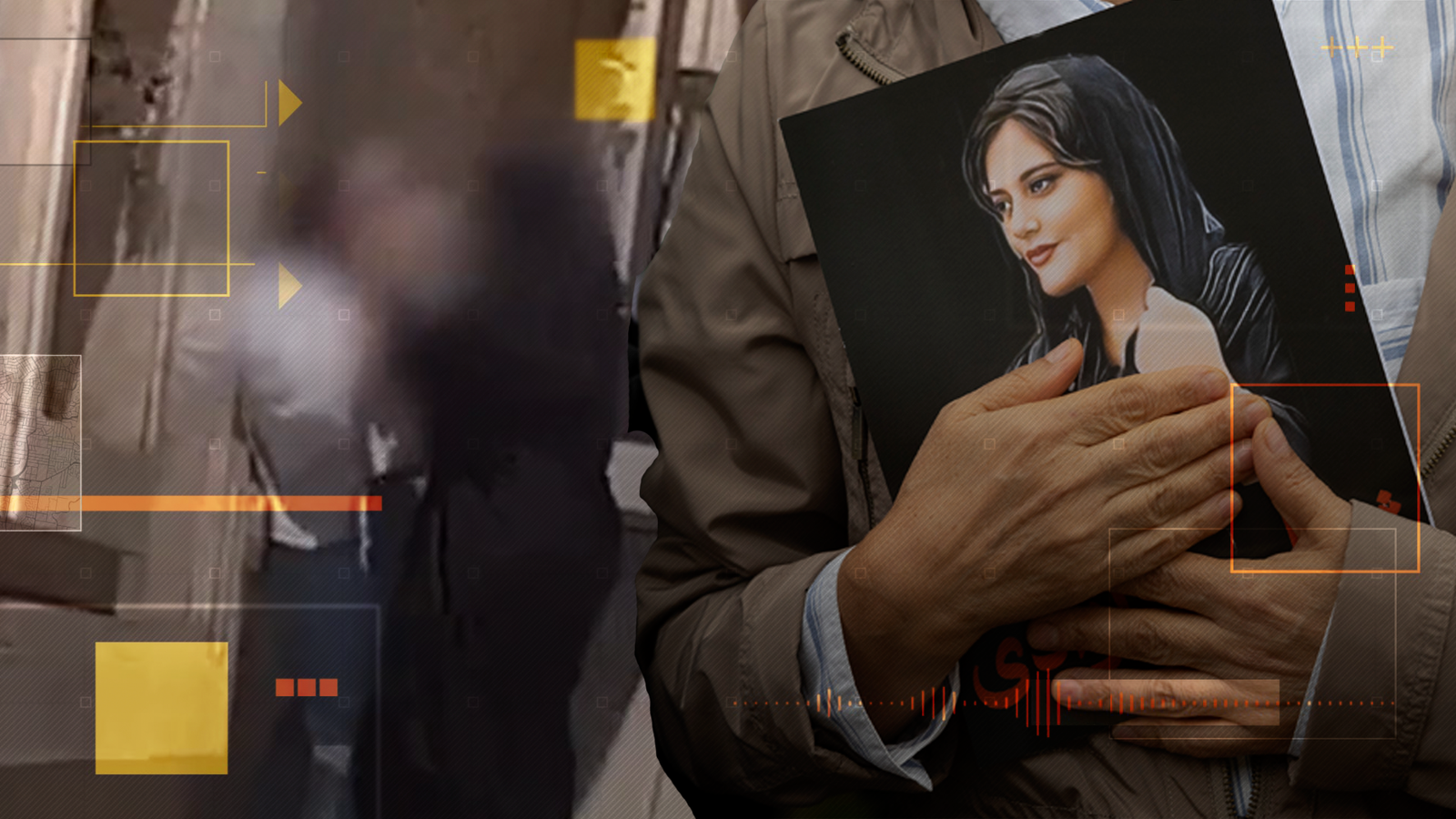Iran protests: Defiant #MahsaAmini protesters push back against strengthened morality police's hijab patrols
The decision to bring back tougher enforcement on head coverings may bring large-scale riots and protests back to Iran, with one expert warning it will "be a matter of time before someone else is killed by the morality police".

Efforts to tighten restrictions on women in Iran have reignited the protest movement that saw the country's streets flooded with furious Iranians for more than half a year.
Calls to commemorate Mahsa Jina Amini, the Kurdish-Iranian woman who died in police custody last year, have rocketed on social media in the wake of announcements strengthening the country's morality police.
The hashtag which means "the anniversary of Mahsa" has been posted almost 350,000 times since mid-June, according to Sky News analysis of data from Talkwalker, a social listening platform.
Amini's death prompted almost daily demonstrations across the country, with protesters calling for regime change in what has become known as the Women Life Freedom movement or the #MahsaAmini movement.
Amini, 22, died just days before her birthday in September last year after being arrested for reportedly not wearing her hijab (head covering) correctly.
By December, in an apparent concession to the protesters, Iran reduced the role of the country's morality police, who enforce religious rules, such as the compulsory wearing of head coverings.
But earlier this month, patrols monitoring women's clothing resumed publicly. Women not wearing a hijab can be potentially detained.
Iran's national flag waves as Milad telecommunications tower and buildings are seen in Tehran, Iran, Tuesday, March 31, 2020. In recent days, Iran which is battling the worst new coronavirus outbreak in the region, has ordered the closure of nonessential businesses and banned intercity travels aimed at preventing the virus' spread. (AP Photo/Vahid Salemi)
UK plans for new powers to sanction Iran after at least 15 'credible threats' to kill or kidnap people in Britain
UK takes Iran to court over Ukrainian passenger jet shot down in 2020
'More people than ever before' using fake passports and visas to get to UK, Iranian asylum seeker says
Although the large-scale protests have dwindled under the force of the state's violent crackdown, many Iranian women are still refusing to wear a head covering in public.
Videos showing the treatment of women in Iran have begun to circulate more widely once again after the news broke on Sunday that the morality police's position would be strengthened.
In this clip, a young woman in jeans and a white top is being physically grabbed and pushed by a woman dressed in conservative clothing in a side street of a trendy Tehran neighbourhood.
Another video shows a similar confrontation, this time in the city of Karaj.
The young woman has been challenged because she is not wearing a head covering. She tells the person filming: "I'm not afraid of you, or anybody else."
Protesters' faces are usually blurred in videos like these, but this time the woman's face is visible. Sky News has decided to obscure her identity for the woman's safety.
The watermark on the video suggests it was first circulated among groups linked to the Iranian security force, the Islamic Revolutionary Guard Corp (IRGC), and Sky News has found the video has been shared in regime-linked groups on messaging app Telegram.
However, it has since been widely shared by protesters who praise her bravery.
Videos like these are shared online by Iranian protesters in the hope of drawing the attention of the international community.
Professor Ali Ansari, director of the Institute for Iranian Studies at the University of St Andrews, explains that the "armed peace" between the regime and the protesters has now shifted.
He said: "The protesters have felt that they've gone as far as they could for that particular time and they needed to regroup.
"The regime felt it needed to 'calm things down'. Over the past few months they've built up this narrative that it's time to bring this back but actually adherence to the veil in a lot of the big cities has really fallen away very, very badly as far as they're concerned."
Professor Ansari said it's been estimated that around 20% of women in Tehran aren't wearing the veil at all, which he describes as "an astonishing level" of the population.
He said: "I suspect what will happen is that you're going to see these things will go viral and things will pick up again and anger will build up. The likelihood is it will generate further riots or demonstrations. Perhaps not immediately, but it'll be a matter of time before someone else is killed by the morality police."
The regime has regularly throttled internet access within the country in an attempt to limit its citizen's connection to the wider world, something Netblocks, an organisation that monitors internet freedom, says is still happening now.
Diana Nammi, the executive director of the UK-based Iranian and Kurdish Women's Rights Organisation (IKWRO), told Sky News the Iranian government is attempting to suppress the movement, using violence and intimidation, but that women will continue to protest.
She said: "In spite of the danger, women in Iran will not stand down.
"So many are demonstrating their defiance against the repression by going out, without wearing the hijab. The movement is like a continuous fire burning under the ashes, with sparks flying all across the country."
More than 500 demonstrators have lost their lives and thousands have been arrested, according to the Human Rights Activists News Agency (HRANA). Several protesters have been executed by the state.
-sky news






